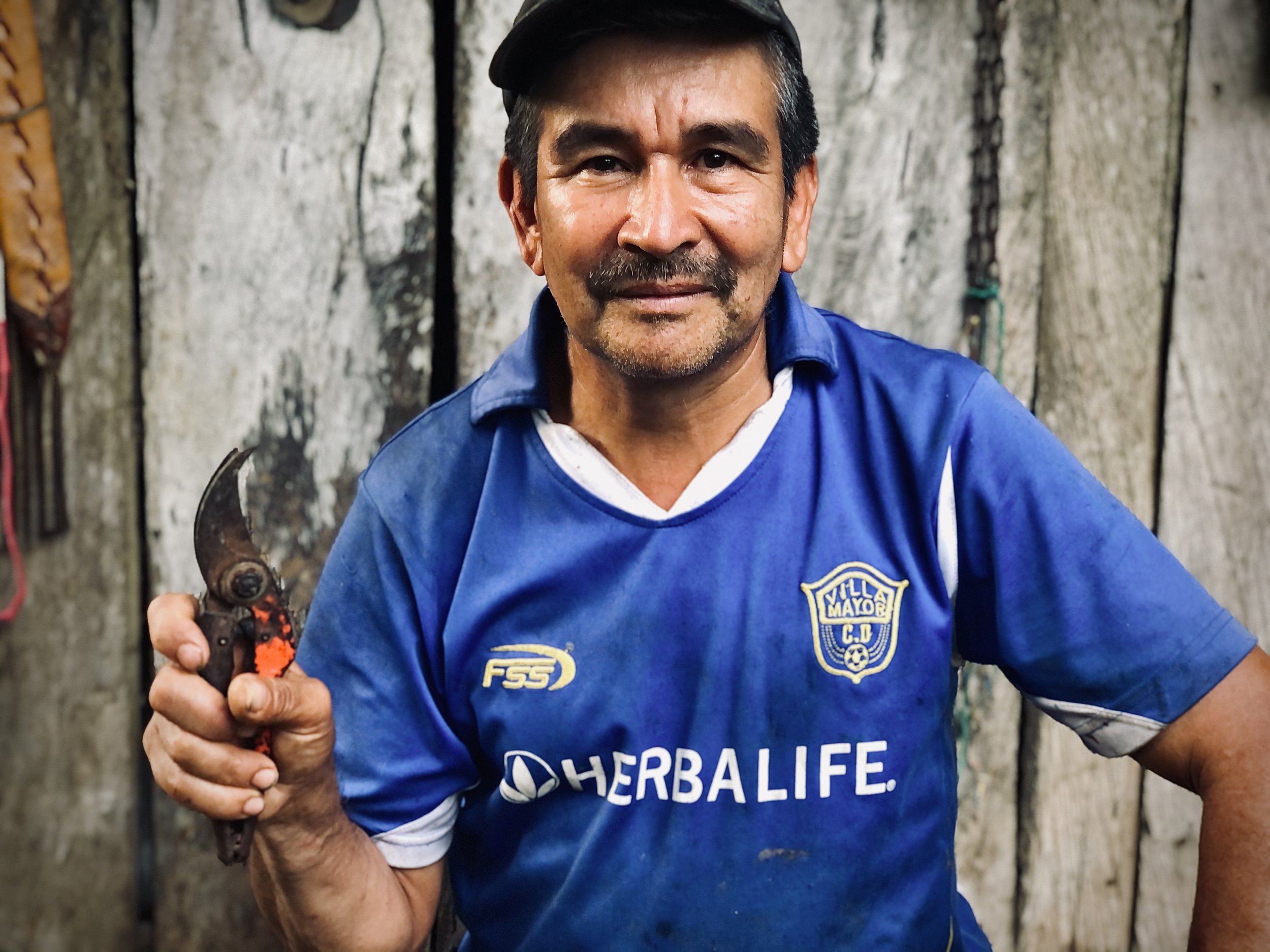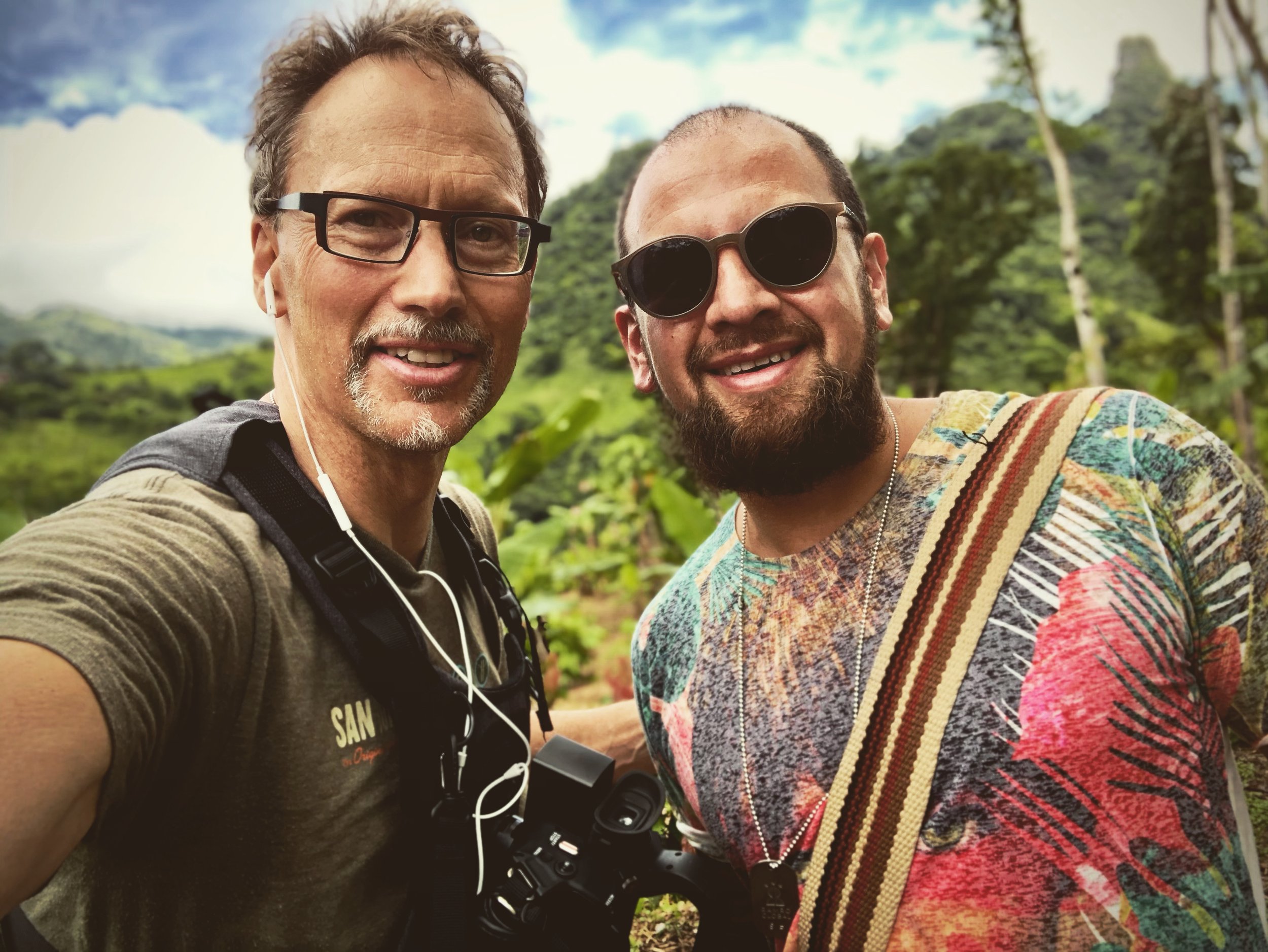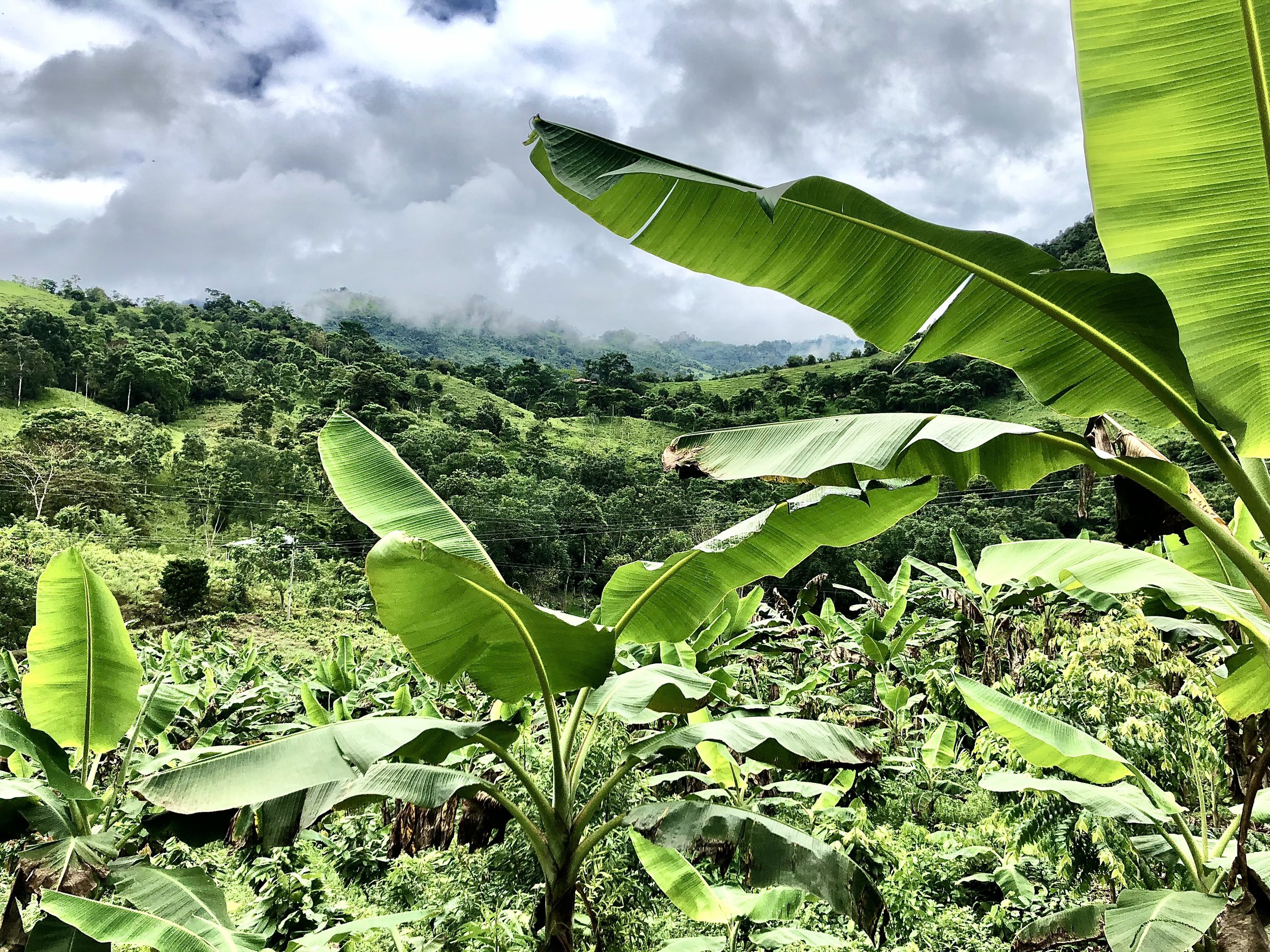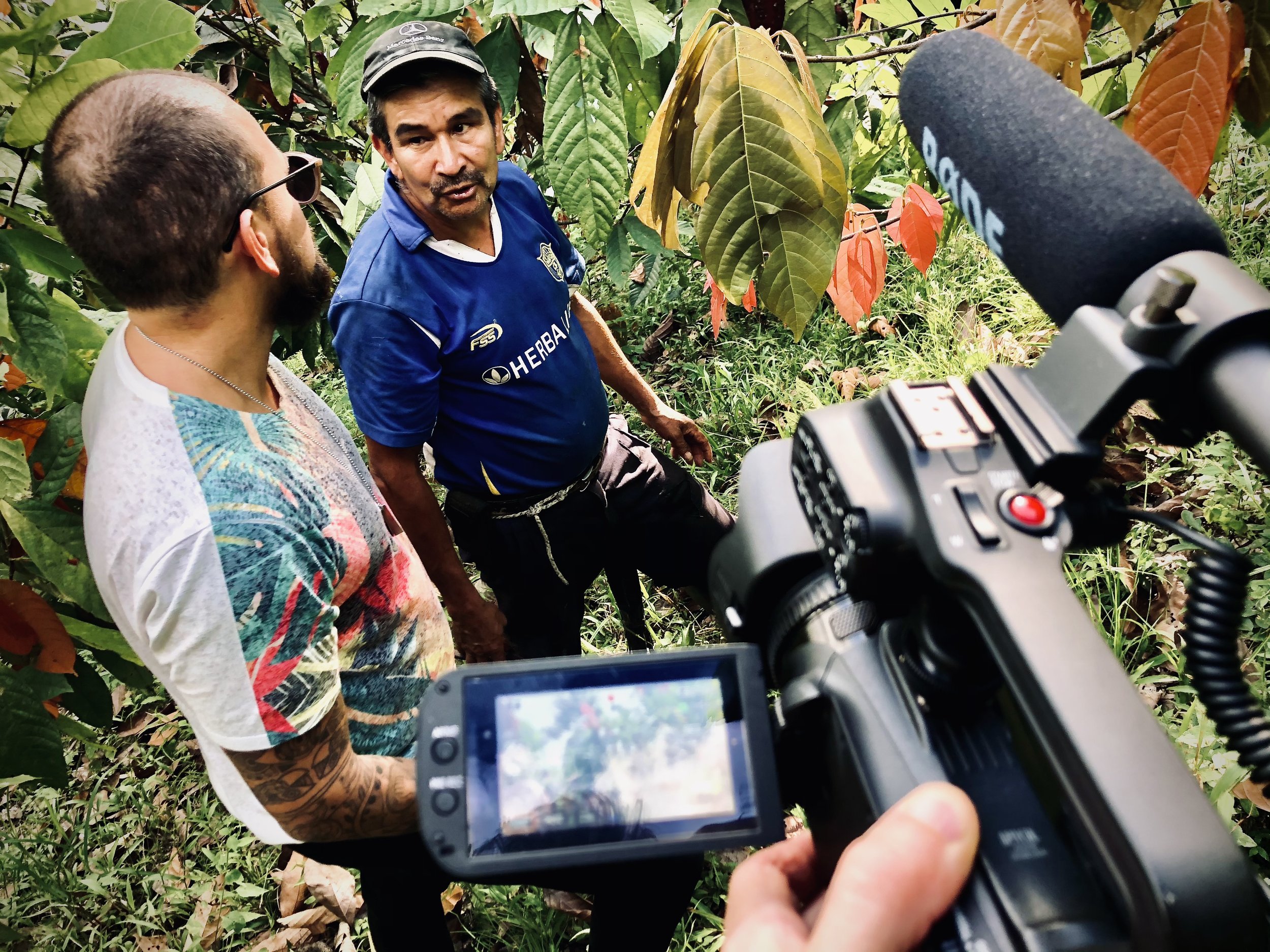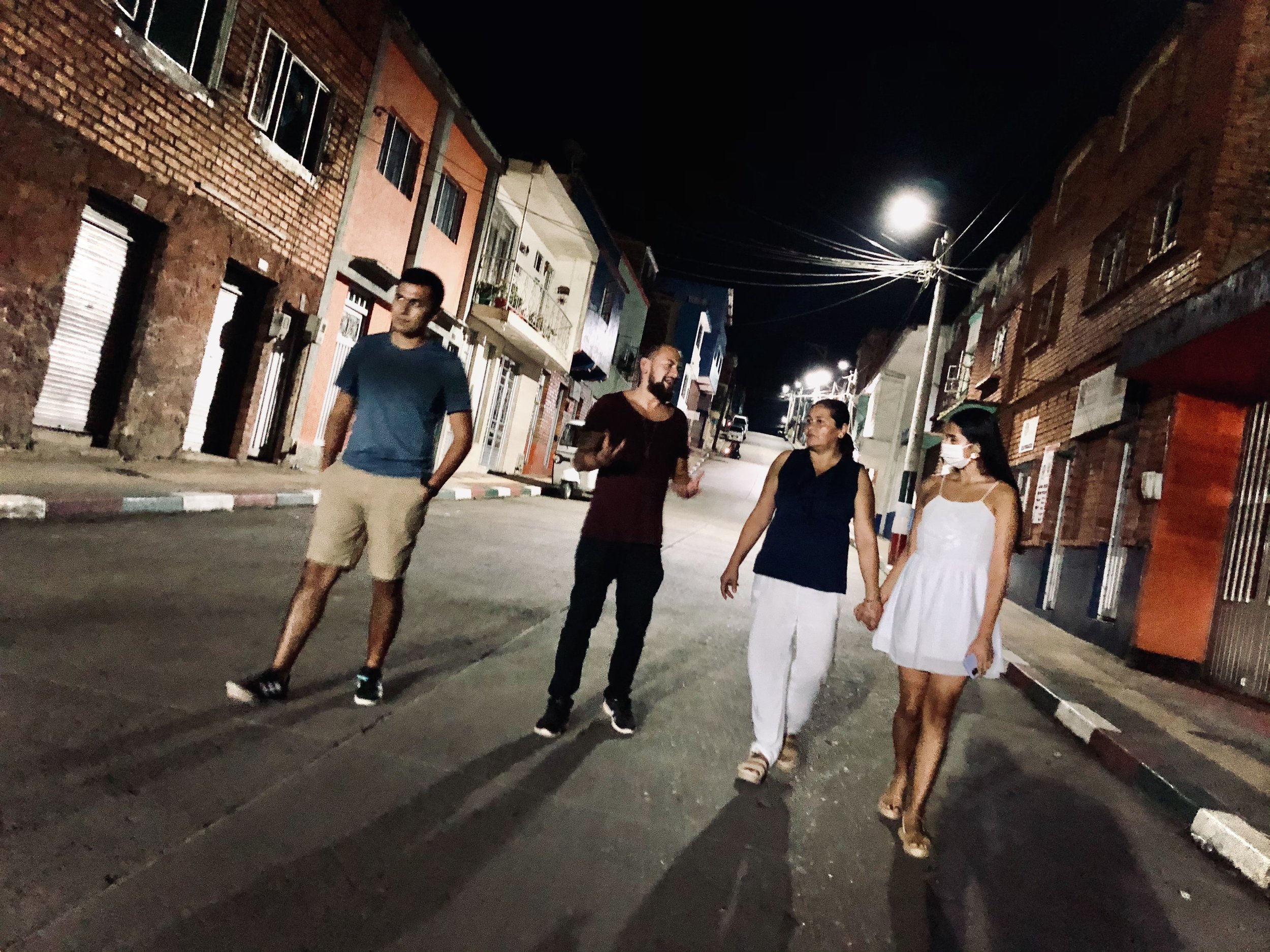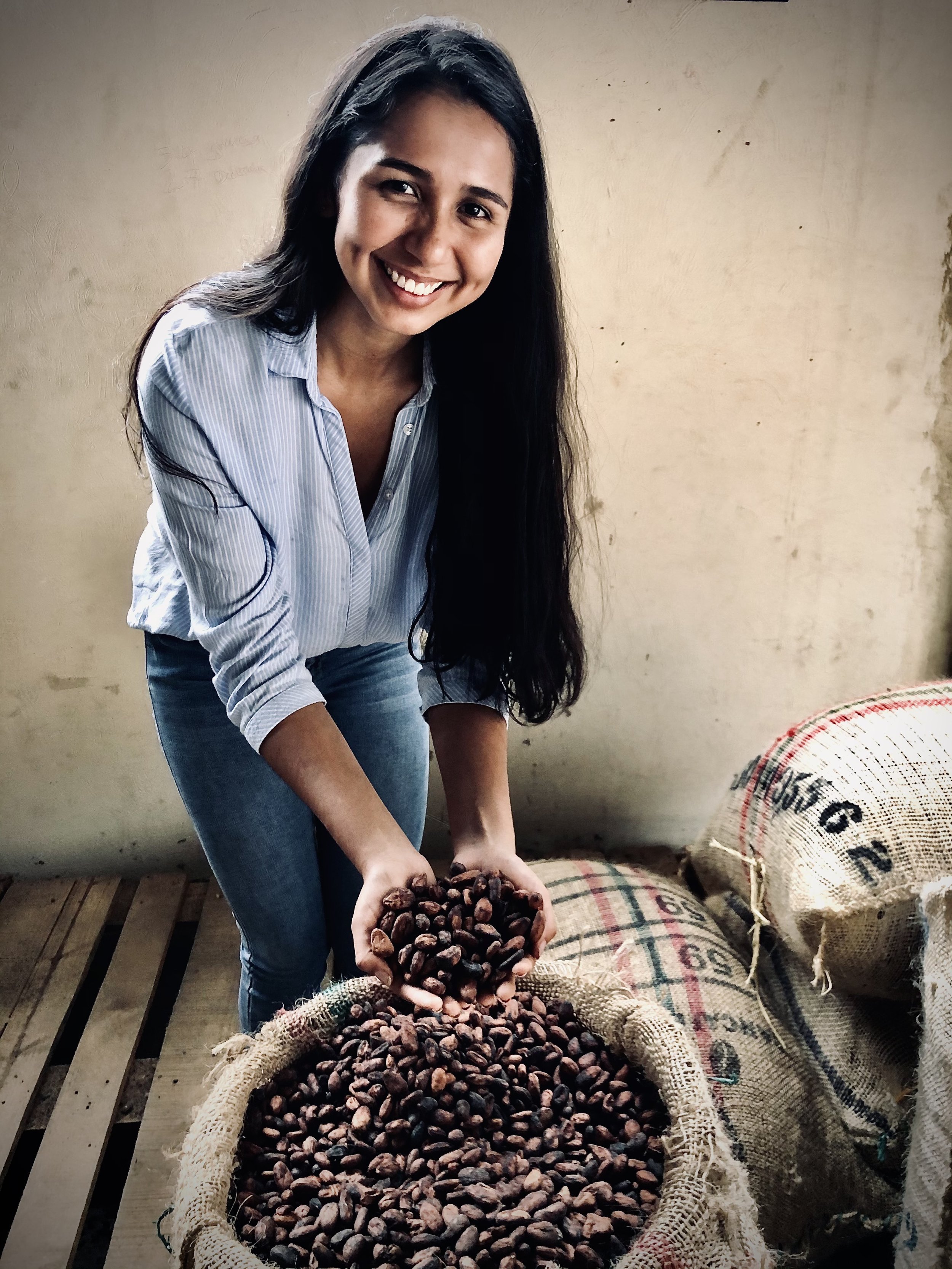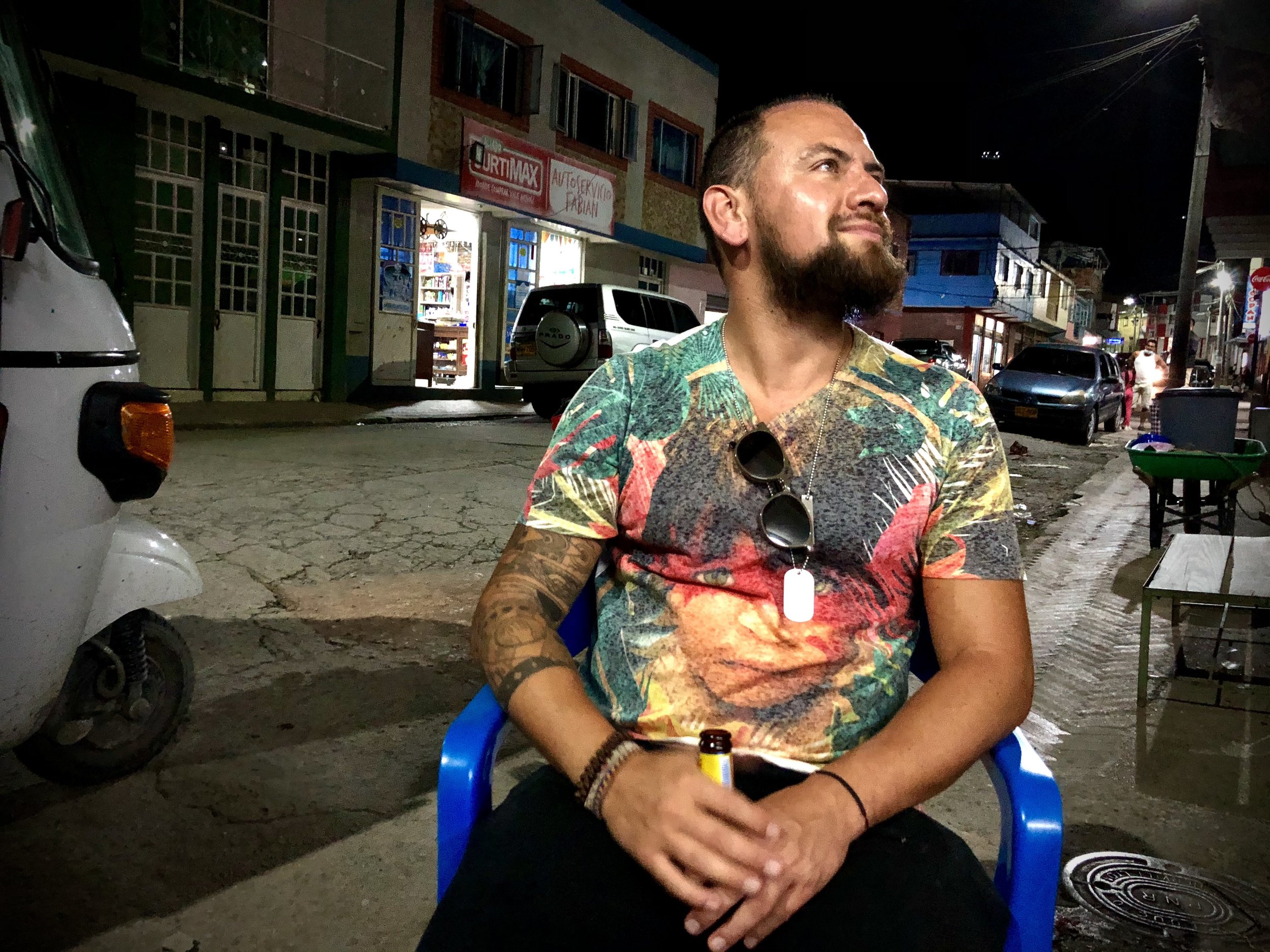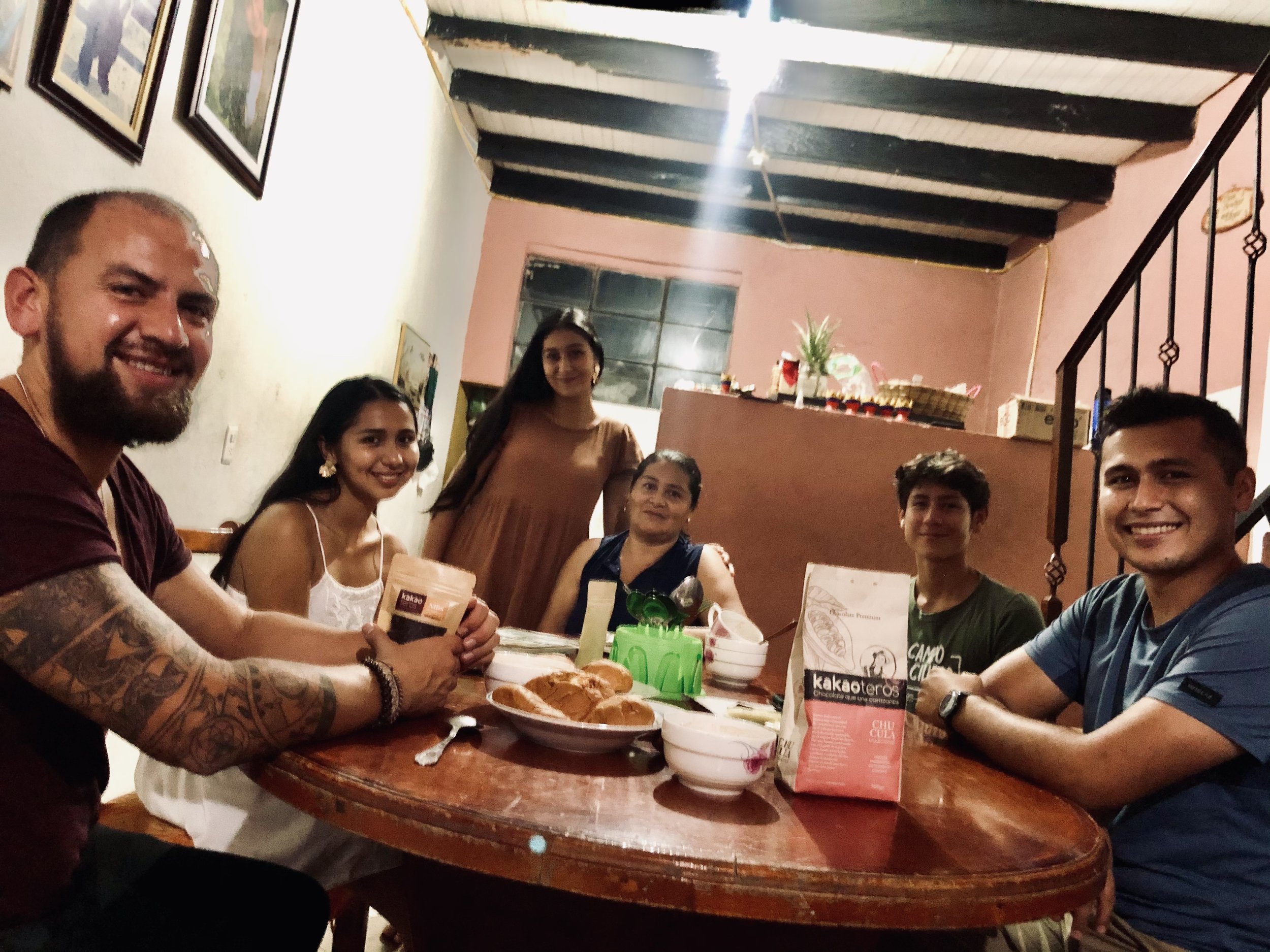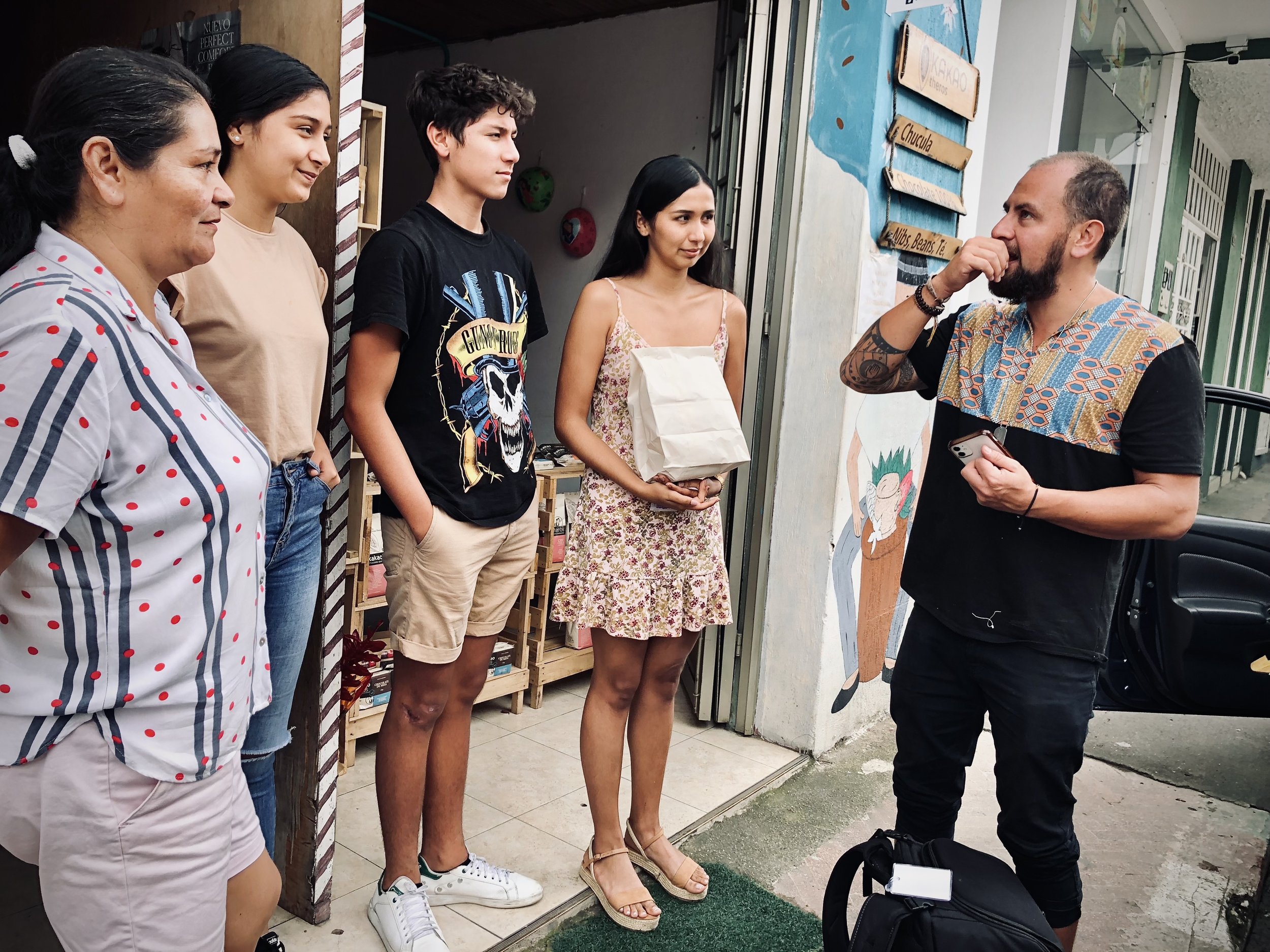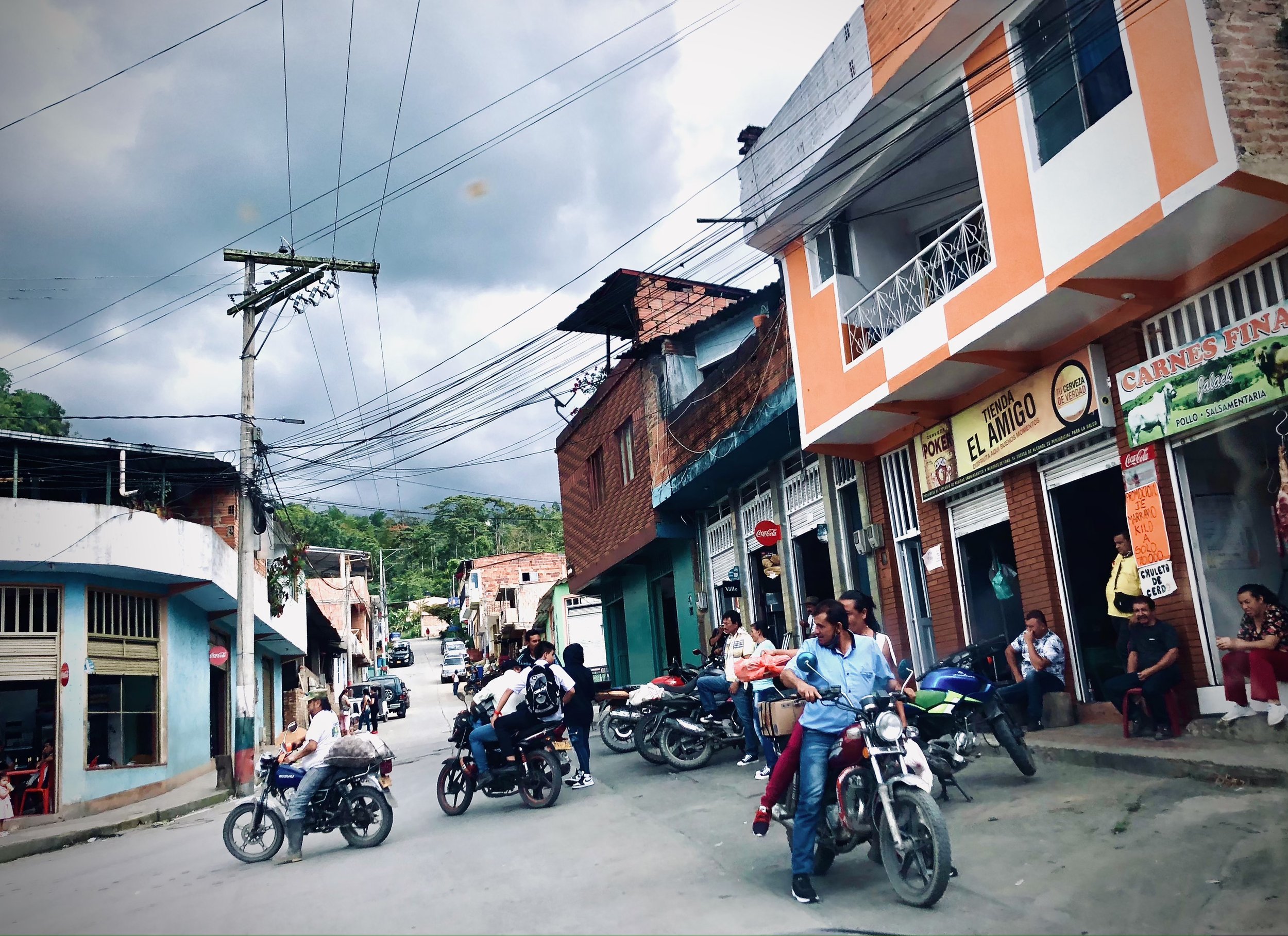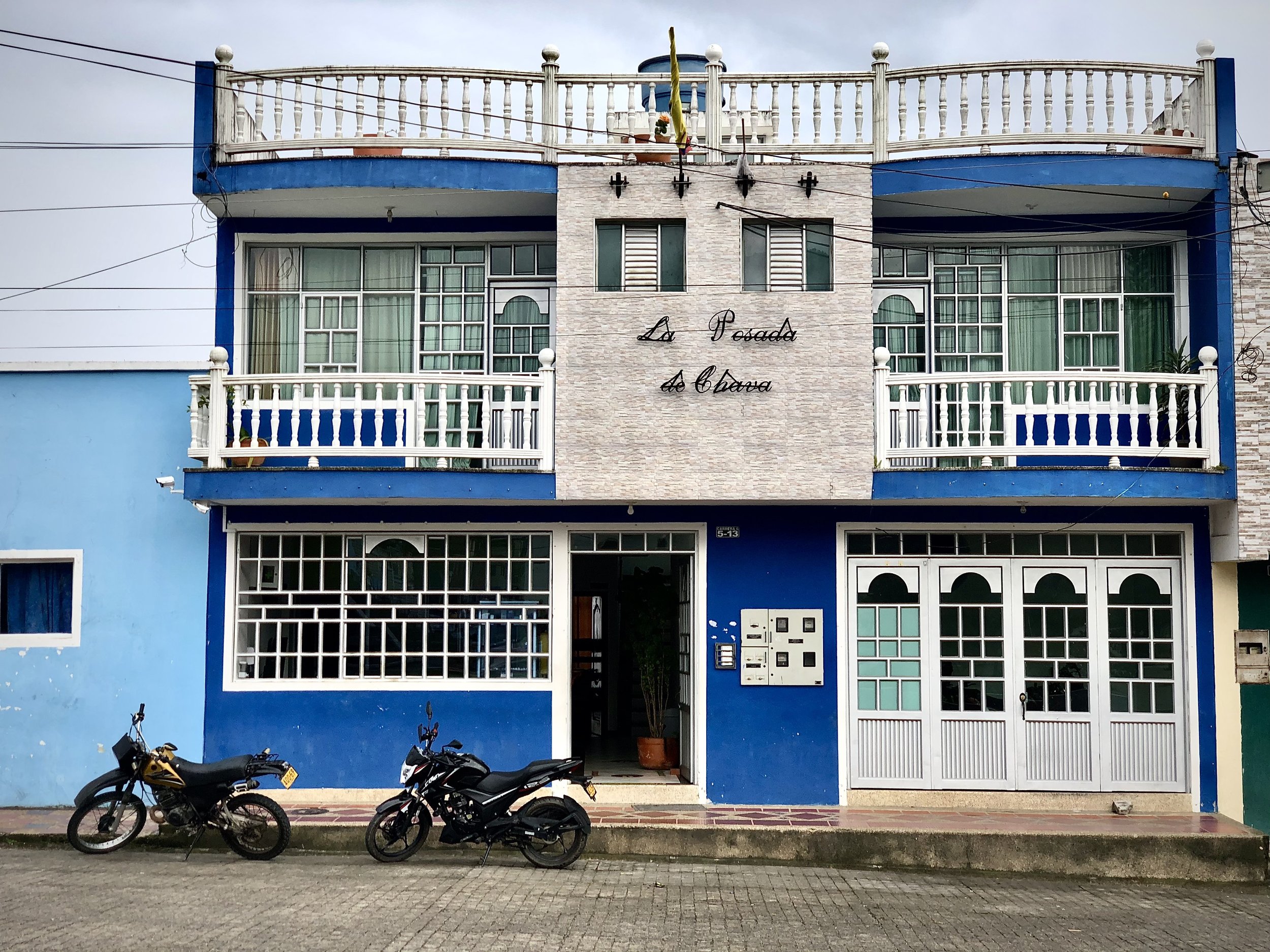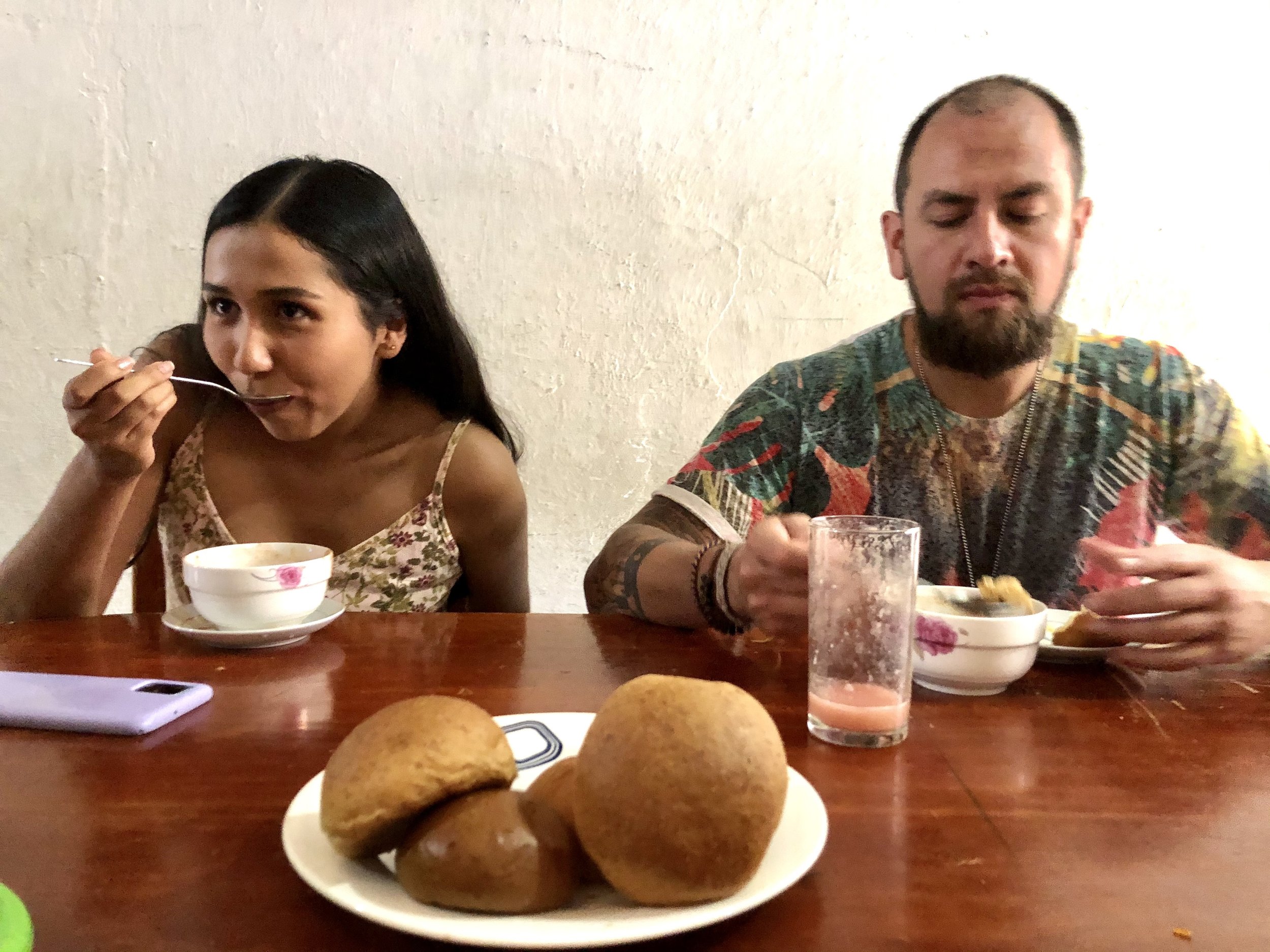Kakaoteros de Paz
Cocaine or Chocolate: Colombia’s Peace Building Proposition
Story, photos and video by Jordan Campbell
MARTEN FONSECA wields his weather beaten machete across the leafy branches that canopy the hillside of his small farm. He’s an older man but commands his sword with youthful vigor as he leads us down into the forest. Trailing behind him is Sergio Figueredo, an athletic and brainy social entrepreneur on a mission to elevate cacao farmers throughout the whole of Colombia. I’m bringing up the rear—a gringo journalist with a war reporter’s camera. Marten cuts down a ripened cacao pod, slices it in half with his blade and hands one of the spheres to Sergio. Inside are dozens of moist seeds that will soon be refined into cacao powder, the foundation of Colombian chocolate, an emerging frontier of socio-economic possibility for the country’s estimated 65,000 cacao farmers.
“We want farmers to be part of an inclusive economy,” explains Sergio, a digital finance pioneer originally from Colombia now living in Toronto, Canada. I’ve spent the past week interviewing him in Bogotá, the country’s sprawling and modern capital city. Now we’re thrashing about in the mountainous jungle, home to venomous snakes that fortify Colombia’s already wild west reputation. Between our roadside espressos and afternoon cervezas, I’m finally grasping how his organization Choco4Peace hopes to bring impact investment and traceable blockchain technology directly to Colombia’s cacao farmers and producers, elevating them throughout the land.
KAKAOTEROS DE PAZ (2022) | Directed & Edited by JORDAN CAMPBELL | Associate Editor MICHAEL HERBENER | Executive Producer JORDAN CAMPBELL | Featuring SERGIO FIGUEREDO & MARLEN FONSECA | A RAMRO GLOBAL® Production (RT 8min 20sec)
“Through blockchain technology we can pay farmers a living wage,” explains Sergio during our bumpy drive back to Pauna, an idyllic mountain town nestled on the Andean spine. If you’re not familiar with blockchain technology, it’s simply a transparent digital ledger, citing a list of transactions that anyone can view, verifying and empowering the players in the supply chain. Blockchain remove banks and intermediaries from the equation, unlocking unimagined potential but it also comes with many unforeseen consequences, both positive and negative. “Blockchain allows you to record every single transaction, which creates trust for farmers and supports peace building in the country,” adds Sergio.
For years, the Colombian government has sought to bring an end to the decades long war against an armed insurgency which has engaged in cocaine production and drug-trafficking, both on the battlefield and through an ambitious crop substitution program. Within this massive enterprise, the United States Agency for International Development or USAID provides substantial financial support for independent farmers and cooperatives to abandon their production of illegal coca—the base ingredient for cocaine—incentivizing them toward the more noble and legal production of cacao.
While USAID develops private-public partnerships through social and financial investment programs such as the Cacao Effect, Choco4Peace hopes to advance crop substitution through their own socially-driven digital investment model. Colombia’s National Federation of Cacao Farmers or Fedecacao, which provides a national framework for crop substitution, has approximately 25 regional offices throughout Colombia, with about 90% of local cacao producers actively enrolled.
Photo: Sergio Figueredo with Marten Fonseca in a cacao farm in Colombia’s Boyacá region.
Crop substitution has achieved meaningful social and humanitarian gains, but it's also been a bumpy evolution with tectonic challenges for farmers who hope to transition. Cacao crops are sustainable and relatively climate friendly—the “bean to bar” manufacturing process produces a low carbon footprint—but coca crops grow three times faster and yield enormous profits. Consequently, armed groups thriving from decades of illicit drug trafficking still reign throughout the mountain and jungle regions. The once quiet town of Arauca, which sits along the Colombian-Venezuelan border is now a flashpoint of guerrilla-led violence. More distressing, towns like Arauca are host to what Sergio describes as “a perfect storm” of vulnerable migrants and asylum seekers who are escaping Venezuela only to become forced or coerced into working the narco trade.
Arriving back to the town of Pauna, I shower off the peaty jungle at La Posada De Chava, my quaint hotel overlooking the town’s pristine plaza. Sergio and I regroup on the street below and amble past the town’s iconic blue-colored Iglesia Páez church, muraled with colorful Andean folklore. The bell tower rings out across the rooftops with storybook refrain. Children play sidewalk games and bustling storefront businesses bounce local customers to either side of the street. Pauna feels safe, secure.
Arriving at the small storefront at Kakaoteros, Sergio and I are greeted by Nicolás and Majo Urbano, a brother-sister team of cacao entrepreneurs. Their family business distributes local chocolate products and fine cocoa throughout greater Colombia but they still sell products from their Calle 5 storefront. Majo proudly presents the latest offering of bars, chocolate nibs and cocoa then leads us down a hallway back into their home to meet their two younger siblings, Juana and Lucas. Their mother, María, serves us all warm Kakaoteros cocoa, accompanied by a thick slab of sweaty afternoon cheese, an unlikely but delicious culinary tradition. Nicolás, the older brother who leads the family business, reveals how Pauna was not always safe or secure.
Through Sergio’s translation, Nicolás explains that after years of escalating national violence, Pauna too had become overwhelmed with regional armed conflict, born from a combination of illegal cocaine production and emerald mining, both rampant throughout the region. Nicolás somberly points out that more than 3500 people were killed through decades of war and revenge-fighting between Pauna and the neighboring town of San Pablo de Borbur. That circle of violence finally de-escalated through years of local resilience, and through their father, an outspoken advocate for peace-building and an early adaptor of Colombia’s crop substitution programs.
More broadly, initiatives like PLAN Colombia, a joint Colombia-U.S. financial aid, military and diplomatic enterprise (2000-2012), had enormous impact during those same years, combating drug cartels and radical left-wing insurgent groups. In 2016, the Colombian Government signed a Peace Agreement with the FARC or Revolutionary Armed Forces of Colombia, the country’s leftist rebel group. Prior to the agreement much of Colombia’s unraveling had come about through what has been described as “an uncommon and unholy alliance between the drug cartels and the FARC,” who played an instrumental role in facilitating Colombia’s cocaine production, narco trafficking and armed conflict.
“The peace deal was a seminal moment in a long process of healing Colombia’s deep social wounds,” Sergio adds then sips his hot chocolate. Majo, who is literally the face of the Kakaoteros brand—her million-dollar smile has become the company logo—chimes in with her best ‘spanglish.’ Majo communicates one unambiguous message to me: “It’s time for a rebrand here in Colombia.”
Photo: Nicolás and Majo Urbano at the storefront of Kakaoteros in Pauna, Boyacá region of Colombia.
Nicolás and Majo guide us back out to the storefront. Cruising happily on our hot cocoa buzz, it’s no surprise that Sergio and I decide to purchase some of the family’s award-winning chocolate products for the road trip back to the city. Through her contagious smile Majo adds, “Cacao can create a new path for Colombia” and then hands me my chocolate selections in a Kakaoteros box. A few hugs later, we’re on our way, driving up into the lush hills and south across the country, to toward Bogotá.
Author’s Note: In August, 2021 I traveled to Bogotá, Colombia with the support of Dan Martinez, an attorney from Houston, Texas and a retired Foreign Service Officer with previous diplomatic experience in the country. Dan greatly assisted in outreach with the U.S. Embassy and Colombian Government officials and various private sector stakeholders. The trip provided us the opportunity to examine how the country’s crop substitution program factors into the 2016 Peace Agreement between the Government of Colombia and the FARC, Colombia's largest armed insurgent group. We also learned more about blockchain and impact investing through Choco4Peace along with other innovative private sector-led efforts which could help Colombia and its government allies to realize greater social and economic gains under the 2016 Peace Agreement. We plan to return to Colombia to observe the national elections in May, 2022 which will test the country’s security and stability.
Special Thanks: Choco4Peace, Fedecacao, USAID
Sources: Foreign Policy, Center for Free & Secure Society, Americas Quarterly, The Guardian, CNN, International Crisis Group

